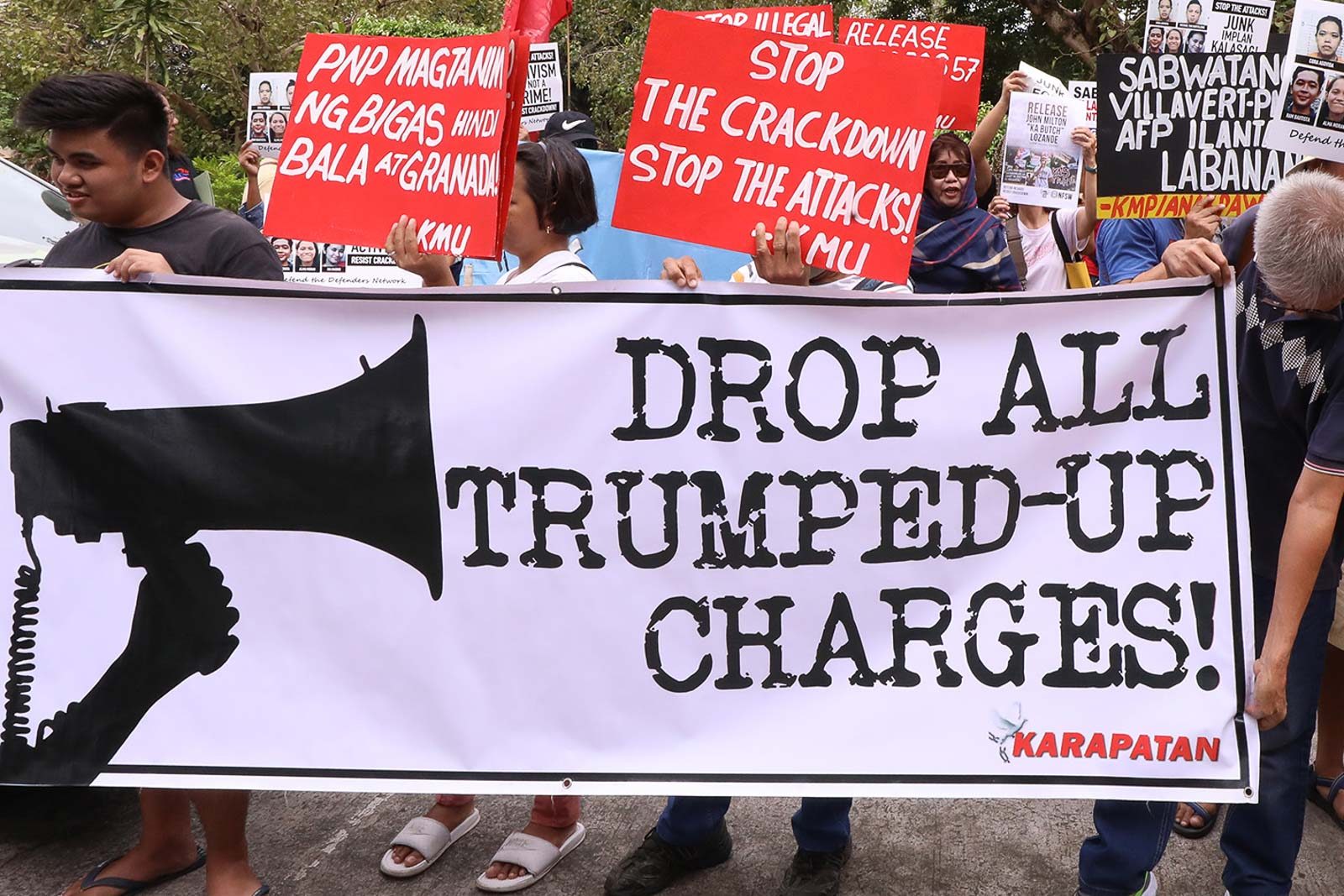SUMMARY
This is AI generated summarization, which may have errors. For context, always refer to the full article.

MANILA, Philippines – A human rights group on Wednesday, March 11, called “hollow and hypocritical” the Philippine delegation’s claim before the United Nations (UN) that they are open to a dialogue on the reported harassments and threats against civil society organizations in the country.
In a statement, the Ecumenical Voice for Human Rights and Peace in the Philippines (EcuVoice) said groups in the country have gone to different avenues to file and seek redress for alleged violations in the Philippines.
“But by and large, these local remedies have been unduly prolonged, ineffective, and even frustrating and illusory for the victims,” Cristina Palabay, co-chairperson of EcuVoice, said.
Palabay, also the secretary-general of Karapatan, said that they also face reprisal suits because of the complaints they file not just in the country but also before international mechanisms.
“We file complaints and communications at the UN and the International Criminal Court, but rather than simply replying and addressing the issues and concerns head-on, the government continues without fail to go berserk,” she said.
The statement comes after Evan Garcia, the country’s Permanent Representative to the UN Office at Geneva, blasted the allegations made by several civil society organizations and urged the UN Council to question the legitimacy of their advocacies.
“These parties have consistently rejected the government’s call for cooperation within domestic mechanisms, towards the investigation, monitoring, and resolution of alleged cases,” he said on Monday, March 9, during the 43rd session of the United Nations Human Rights Council (UNHRC).
“Instead, they continue to travel around Europe presenting fabrications on facts, numbers, and realities in the Philippines,” he said.
The delegation was responding to previous statements and reports tackling the human rights situation in the Philippines delivered by several civil society organizations, including EcuVoice and Karapatan, among others.
Garcia also called the groups as fronts of the Communist Party of the Philippines.
In denial
Filipino lawyer Edre Olalia, EcuVoice delegation head, blasted Garcia and the Philippine government for their “contrived and empty offers of dialogue,” adding that it continues to “churn out hostile and vicious red-tagging threats against us in the same breath.”
“Look at how this government presents itself before this global stage by denying everything about the grave human rights situation in the Philippines, imposing on how members of the UNHRC should think despite incontrovertible facts, and continuously violating the freedoms and safety of rights defenders themselves by unmitigated hate speech not even couched in proper diplomatese,” he said.
During the 43rd session of the UNHRC, civil society organizatons highlighted the continuing war on drugs, the shrinking civic space, and the harassment against activists in the Philippines, including the persistent red-tagging. (READ: Lives in danger as red-tagging campaign intensifies)
Olalia, also the transitional president of the International Association of Democratic Lawyers and president of the National Union of Peoples’ Lawyers, also discussed before the HRC the killings of lawyers under the Duterte administration.
At least 8 UN experts in December 2019 sent a letter to Duterte expressing concern about the reported harassment and threats, reminding the government that attacking activists raises the risk of violence, among others. They have yet to receive a reply as of March 2020.
UN rights chief Michelle Bachelet, meanwhile, is expected to submit to the council her comprehensive report on the Philippine situation not later than June 2020.
The Duterte government has been widely criticized for its treatment of dissent, particularly its crackdown on progressive groups and the President’s public vilification of those who expressed concern about government policies, especially the violent war on drugs. (READ: Duterte’s war on dissent) – Rappler.com
Add a comment
How does this make you feel?
There are no comments yet. Add your comment to start the conversation.